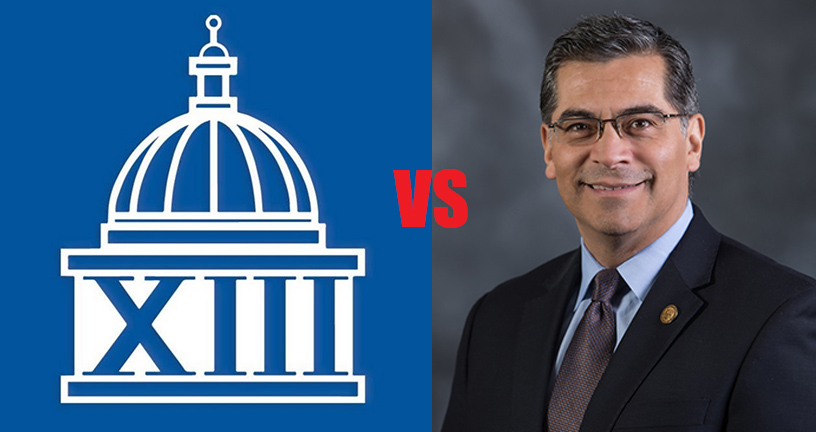City hires outside attorneys, sends case to federal court; 90-day repayment period per month of late rent still in place
“Freedom isn’t free. Sometimes you have to stand up,” – Mark Jordan
By Allen Payton
 In efforts to fight for his rights, and those of other Antioch and Contra Costa County residents and property owners, local real estate broker, Mark Jordan has been suing the City of Antioch over its rent and eviction moratorium. Specifically, Jordan is fighting the “City Urgency Ordinance and the rental repayment infringement,” and challenging both the city and county over the curfews, in June.
In efforts to fight for his rights, and those of other Antioch and Contra Costa County residents and property owners, local real estate broker, Mark Jordan has been suing the City of Antioch over its rent and eviction moratorium. Specifically, Jordan is fighting the “City Urgency Ordinance and the rental repayment infringement,” and challenging both the city and county over the curfews, in June.
Temporary Evictions, Rent Moratorium Lawsuit Served
In April, Jordan sent a “Cease and Desist Demand” to the members of the Antioch City Council on Friday, April 3 in response to their vote on March 31 to place a moratorium on evictions for both residential and commercial properties. The council’s actions give renters up to 90 days to repay for each month of rent they are unable to pay during the coronavirus pandemic. (See related article) ACC2020.03.31 – URGENCY ORDINANCE – Moratorium on Evictions Temp Evictions Complaint.Jordan.v.COA
No action was taken by the city council in response to Jordan’s demand, so on June 2, he served the City of Antioch with a lawsuit challenging the council’s decision.
“I gave the City every opportunity to back up on this issue,” Jordan wrote. “They did not.”
On June 18 Jordan wrote the Herald regarding an agenda item on the June 23 City Council meeting agenda, that the “City is looking to walk back the Ordinance, but is not addressing the core issue of the suit which is the illegal 90-day per month grace period for missed rent.”
Semi-Victory as Council Expires Moratorium
For the Antioch Council meeting on Tuesday, June 23, 2020 Jordan submitted the following comments for the agenda item dealing with the expiration of the city’s moratorium on rent increases and evictions. However, they were not read into the record.
City Clerk Arne Simonsen said Jordan’s comments were sent to his personal email account. But Jordan said he emailed his comments to Simonsen and all five city council members.
“Mayor and Council,
For the citizens of the City of Antioch, let me bring you up to speed.
I am a Plaintiff in a lawsuit against the City of Antioch concerning the Urgency Ordinance passed on March 31, 2020 No: 2182-C-S. The case number of my suit at the Superior Court of California, County of Contra Costa is MSC20-00976.
Why am I suing the City of Antioch? Because when they passed the Ordinance they violated the
Constitution of the United States and also the Constitution of the State of California. They violated your rights.
I noticed them that in passing the Ordinance they were making a mistake but they pressed forward. I demanded they rescind the Ordinance. They did nothing. The Courts opened and I filed.
Just so you know when an elected official violates the Constitution they are violating their oath of office and are therefore in a position where they may be held criminally liable and where qualified immunity may not protect them. Not a good place to be Mr. Mayor, Council Members.
It is not that tenants did not need protection initially because of the pandemic. They did, but when the City created a 90 day repayment period for each month a tenant was not paying rent, that was too far.
Miss a year’s rent, get 1080 days to catch up. That is almost three years. Nonsense.
This is governmental interference in private contracts and there is case law all the way back to the beginning of the Republic. You do not pass the general legal three point test to validate your action.
So, why did the City Council do this? Because; the City Attorney, Mr. Smith is providing very poor council (sic). And, although Mr. Smith has an excellent legal education he has little time in the practice of law.
Advice to Counsel Smith, wisdom comes with age. You are over your head.
The City now is attempting to sunset the Ordinance stating tenants have other protectors. True, but the real reason is that the City Attorney is trying to create a situation in which he can file a response and claim the matter is moot (over). It is not. Constitutional violations remain past a sunset. And, I will press the matter.
Antioch, also know this. I called the City Attorney last Friday after reviewing Agenda item 9. There has been NO return call. I talked with Mayor Wright yesterday stating I had reviewed the information and was prepared to sit and work out a settlement and informed him that there has been no response from Mr. Smith.
Since that discussion there has been NO response to my offer from the City of Antioch, Mayor, Manager or Counsel Smith. When any citizen cannot get a return phone call, government is failing. You are failing City Council.
Therefore; Antioch be informed that your City government, our City government, my City government is prepared to spend our money on a matter they will not win and should be anxious to conclude.
Did Mr. Smith miss the class at Harvard on settlement? What exactly are you trying to achieve City Council?
This is not my first run in with the City of Antioch. The first was about Religious Freedom and I had to bring in legal counsel to explain the U.S. Constitution. I prevailed. A church was able to obtain their sanctuary.
The second was a suit in which the City violated the California Constitution, Prop 218 over a number of years and agreed to return nearly a million dollars to Antioch Enterprise Funds. Police don’t patrol or protect sewer lines.
City Council, you really want to go to court? Really?
If you do, know I’m all in. I will press my rights and the rights of every other property owner in Antioch.
Not to the detriment of tenants but to the equality of the law, due process and our, everyone’s Constitutional rights.
My phone works just fine. You have to dial the seven digits. It’s a local call.”
During their meeting, the Antioch City Council approved an urgency ordinance expiring the city’s rent increase and eviction moratorium, giving Jordan a partial victory. However, that action was only taken because the county’s moratorium, approved by the Board of Supervisors and runs through July 15, applies to cities as well as unincorporated areas of the county. According to the ordinance the City Council finds that “residences and businesses… will continue to have protections from eviction and adequate ‘grace periods’ to repay unpaid rent…from the Governor’s Executive Orders, Judicial Council Emergency Rule, and the County’s Urgency Ordinance.” Urgency Ordinance expiring Eviction & Rent Increase Moratorium ACC062320
Another Lawsuit by Others Against State
In addition to Jordan’s lawsuit, another lawsuit was filed against the state on June 15 by the Pacific Legal Foundation (PLF) on behalf of two rental property owners challenging California courts’ refusal to hear eviction proceedings. (Christiansen & Martin vs. California Judicial Council).
In that case, PLF argues “the California Judicial Council decided to take matters into its own hands and effectively banned all evictions by forbidding courts from issuing summons or entering default judgments.
Their measure, Emergency Rule 1, means that landlords like Peggy Christensen, a retiree who depends on her rental income, cannot take legal action against tenants who damage the property, harass other tenants, or refuse to pay rent. It also means that landlords like Peggy are forced to turn away considerate renters in need of housing. In making this rule, the Judicial Council has seized policymaking power from the legislature and governor to block landlords’ access to the courts. Peggy and Peter Martin, another landlord, are fighting back with a state lawsuit to rein in the Judicial Council’s illegal overreach, restore the rule of law, and protect the entire state’s critical rental housing industry.”
According to PLF the “government cannot deprive landlords of their right to evict tenants who are able to pay rent yet refuse to do so, crippling their businesses and handicapping their ability to help tenants who face financial hardship.” Furthermore, the PLF claims “the California Constitution’s separation of powers prevents government agencies like the California Judicial Council from overriding the legislature and governor to take the law into its own hands and make social policy.”
Jordan’s Not Backing Down on 90-Day Repayment Period
In spite of the Antioch Council’s action on Tuesday night, June 23, Jordan refuses to back down.
“The fact that they’ve sunseted the ordinance doesn’t mean their violation of constitutional rights goes away,” Jordan said. “There are still remedies. So, this is not over.”
“Smith just wants to file a motion to dismiss because the whole matter is moot, since they sunseted the original ordinance,” Jordan stated. “I told the mayor I was more than willing to sit down and have a conversation with the city attorney. But there have been no phone calls.”
City Settles Previous Lawsuit by Jordan Over Misuse of Tax Dollars
“When I sued the city over their misuse of enterprise funds for police, theirs and my attorneys sat down and met with me, and we worked out a settlement agreement,” he explained. “Then it was taken to the council for approval. Since I have no attorney representing me, it’s incumbent upon Smith to meet with me and to try and settle the matter and take that to the council.”
“I’m actually saving the city money. The last time I sued them they had to pay my attorney $75,000,” Jordan added. (See related article)
City Settles Previous Lawsuit by Jordan Over Misuse of Tax Dollars
The legal counsel for the California Association of Realtors has been given a copy of Jordan’s lawsuit.
“They are actively watching all of these suits,” he said.
“We have a court date for a temporary injunction. That would enjoin the city from implementing the entire ordinance. If in fact they have sunseted the ordinance, that hearing would probably be unnecessary and all that remains are the constitutional violations. I’m not looking for any money, personally,” Jordan shared. “When you settle a lawsuit, people don’t normally admit any culpability. What they’re prepared to offer to settle the suit I don’t know because I can’t get a returned phone call.”
“I told the mayor if you think you’re going to just file an order to dismiss when you’ve violated my and others’ constitutional rights, that won’t settle the matter.
The court date was set for the August 24th.
He pointed out that the urgency ordinance adopted by the city council on June 23 had the incorrect number for the original urgency ordinance on the rent and evictions moratorium. The number used nine times in the document was 2181 instead of the correct Urgency Ordinance 2182-C-S.
“It is the wrong ordinance that they sunseted, as it has the wrong number on it. I know I’m being picky and technical about it, but that’s the law,” Jordan stated. “So, if they didn’t change the number, they didn’t sunset it.”
City’s Contract Attorney Responds
As of Friday, June 26 City Attorney Smith had yet to respond to Jordan’s lawsuit. Instead, that night at about 6:00 p.m., according to Jordan, attorney David Mehretu of Meyers Nave in Oakland, who was hired by the City to represent them, contacted Jordan about his case.
City’s 90-Day Per Month Repayment Period Still In Place
In addition, the City asked Mehretu to answer the questions the Herald sent to City Attorney Smith about the incorrect ordinance number in the new urgency ordinance and the impacts of the council’s sunsetting of the urgency ordinance.
Mehretu explained that the incorrect number in the new urgency ordinance which sunseted the original urgency ordinance was merely a clerical error and could be corrected by city staff. The intent of the city council is clear and the language in the new ordinance clearly refers to the original urgency ordinance. So, no additional vote of the council is necessary.
Regarding the 90-day repayment period for each month a renter is unable to pay, Mehretu said, “the sunset or termination of the urgency ordinance did not eliminate the 90-day per month in arrears protection for renters in Antioch.”
The months covered are “from the date of the original ordinance” which was adopted by the city council during a special meeting held on March 31, 2020. So, the city’s ordinance covers rent for the months of April, May and June and gives renters in Antioch nine months from the end of the shelter-in-place, which is currently scheduled to expire on July 15, to repay their back rent.
Rent for July is covered under the county’s ordinance which gives renters 120 days to repay all back rent. Assuming the current shelter-in-place order is lifted on July 15, renters anywhere in the county who have been unable to pay their rent would have until November 15 to repay rent for July.
That’s what Jordan is fighting, claims is unfair and violates his constitutional rights.
Settlement Effort Breaks Down, New Meeting Set
Jordan attempted unsuccessfully to settle the case with the city out of court.
“We were close, but settlement failed,” he shared on Tuesday, June 30. “The City will respond to the lawsuit and we will move on.”
However, Jordan added, “We have a tentative agreement to have a discussion on settlement, next week.”
City’s Contract Attorneys Submit “Answer to Complaint”
The contract attorneys for the City, which now includes Deborah Fox, also of Meyers Nave, sent Jordan a response to his lawsuit, yesterday, Thursday, July 2nd. Jordan-Antioch-Answer
In their “Answer to Complaint” they offer eight Affirmative Defenses claiming Jordan’s lawsuit “fails to state facts sufficient to constitute a cause of action,” that he “lacks standing because Plaintiff (Jordan) has not suffered an injury in fact,” and “as a private party, Plaintiff lacks standing to enforce criminal laws.”
In addition, the City’s attorneys argue Jordan should have first filed a claim against the City, “pursuant to Government Code section 911.2 et seq.” The attorney’s Fifth Affirmative Defense is that the City “is not liable to Plaintiff because the acts complained of in the Complaint constituted one or more discretionary acts.”
The city’s attorneys are, of course, asking that the court dismiss the case and for Jordan to pay the City for costs and attorneys’ fees.
Case Moved to Federal Court – No Date Set, Yet
On Friday, July 3, Jordan shared, “City moves case from California Court to Federal court because there are US Constitutional claims of violation by the City.” Jordan-Antioch-STATE ECF 1 Jordan-Antioch
In the filing, the first attorney listed for the city is Thomas Smith. So, both he and the attorney they hired are representing the city.
The case will no longer be heard on August 24th and there is no hearing date for a temporary injunction.
“I would have to write a new motion for federal court requesting a temporary injunction,” Jordan said. “The entire jurisdiction moves to federal court and whether they will set a new date we don’t know, yet.”
He reached out to the Pacific Legal Foundation, following advice of the California Association of Realtors, for possible pro bono representation.
Antioch Curfew Challenge
On Monday, June 1, 2020, the City of Antioch ordered a curfew for that night and later extended it through the following night. The Antioch Police Department stated in a Facebook post, that day that the “decision was made after we were made aware of credible threats of subjects coming into our community for the purpose of causing damage and committing criminal acts.” (See related article)
On June 2, Jordan wrote Mayor Sean Wright and councilmembers challenging both the curfew and the way it was announced: “I have read…that the City Manager has enacted a curfew. Is this correct? 1. No posting exists on the City web site and therefore Notice does not exist for the public. Or, where did you post such a notice and when for the public? 2. By what right does the Manager have the right to enact a curfew? Did you relegate your responsibility? Why did the council not act? 3. What emergency was declared? Please see Emergency Services Act for approved list of emergencies. 4. Where did you post the notice of emergency? 5. What section of the Penal Code of the State of California are you using? Please answer the above questions or have the City Attorney respond to the questions. Please provide a copy of the Notice if it exists.”
Jordan later wrote the Herald, “News is not a posting by the City. And, you must have an emergency declared. Based on my reading. New report states Manager declared. Government does not have the right to take away civil rights based on a whim.”
Jordan received a copy of the Curfew Order from the city on the afternoon of June 2.
In response, Jordan emailed City Manager Ron Bernal writing, “Mr. Bernal, Please define exactly what events occurred in Antioch that you reference and which would constitute an emergency under the Emergency Services Act. See Curfew Order, City of Antioch, 4th bullet point, dated June 1, 2020. You cannot act upon a belief or thought that an emergency may require this action. There MUST be an actual emergency. This order without reference may constitute an attempt to silence free speech, the right of assembly and the right to present grievance against the government. Please refer to the US Constitution and the State of California Constitution. Please define what, when and where caused this order within and for the City of Antioch.”
Having received no response, Jordan sent another email message to Bernal the next day, June 3: “Mr. Bernal, This is my 2nd request for exactly what events occurred within the City of Antioch that require this City curfew. I will deal with the County separately. As with other matters I wish to give you and the City of Antioch every opportunity to comply with the requirements of the Emergency Services Act and to properly Notice the community as to what events occurred. A belief that an event might occur is insufficient to meet the requirements of the Act. It is clear to the public now you know how to amend your Orders.
If you fail to respond, and fail to state to the public of Antioch exactly what events you reference and publish that clarification, well, then it is likely I will move to reverse you attempt to create a police state within the City. Fair warning, don’t press me. I take my civil rights, the United States Constitution and the Bill of Rights seriously. And, I’m willing to fight to guard them.
I suggest you obtain legal advice outside of the City Attorney; perhaps someone well versed in the Constitution of the United States and the Bill of Rights. I would direct your attention to Article 1. Your response and information is anticipated by the entire public of the City.”
Having still received no response from the City, Jordan wrote the Herald, “These documents and the Order of Curfew do not meet the requirement of the Act. There is NO response from the City.”
Then on June 4, Jordan wrote the Herald, “no one from the City ever responded to my request for information. I posted the emails for the Mayor’s community forum 6/3/2020 but have no response from the Mayor. There was never a statement of what event(s) occurred which would justify such an order. And, to be clear, ‘credible evidence’ that something might happen, is not sufficient to implement a curfew based on the Act. I’m not sure anyone at the City understands Constitutional Rights.”
County Curfew Challenge
That same day, June 4, Jordan emailed members of the County Board of Supervisors about his concern over the county’s curfew.
“Board of Supervisors, It is my belief that you do not have the right or authority based on the Emergency Services Act to issue an unlimited curfew. Your order appears in violation of both the United States Constitution, Article 1 and the State of California Constitution.
Understood that there exists activity that most likely violates the California Penal Code. And, that any alleged criminal behavior should be addressed and directed to the District of Attorney. That said this order is a massive overreach bordering on the creation of a police state affecting all of the citizens of the County who have nothing to do with or who are effected by any of the minor civil unrest.
Therefore, I demand that you amend the order immediately to include a date certain termination or rescind the order in total. Should you do either by June 9, 2020 I will consider this matter closed. Your correction and attention to this matter is appreciated. If your counsel wishes to speak to me have him call.”
Supervisor Karen Mitchoff’s Chief of Staff, Anne O. responded to Jordan via email later that day writing, “The County Administrator has rescinded the curfew, effective 1pm today.”
He also received a copy of the county’s curfew termination order, which ended that issue.
“Freedom isn’t free. Sometimes you have to stand up,” Jordan added.
 COVID-19 cases have spiked, resulting in a new stay-at-home order for the county effective this weekend. To limit the risk of COVID-19 transmission, the Court will enact a LIMITED COURT CLOSURE effective Monday, December 7, 2020, and until further notice.
COVID-19 cases have spiked, resulting in a new stay-at-home order for the county effective this weekend. To limit the risk of COVID-19 transmission, the Court will enact a LIMITED COURT CLOSURE effective Monday, December 7, 2020, and until further notice.










 Following
Following  On Thursday, August 13,
On Thursday, August 13, 
 Today, July 29, 2020, the Howard Jarvis Taxpayers Association filed a lawsuit against California Attorney General Xavier Becerra for his abject failure to produce impartial ballot material related to Proposition 15, the “split roll” attack that seeks the partial repeal of Proposition 13.
Today, July 29, 2020, the Howard Jarvis Taxpayers Association filed a lawsuit against California Attorney General Xavier Becerra for his abject failure to produce impartial ballot material related to Proposition 15, the “split roll” attack that seeks the partial repeal of Proposition 13.
 Following is the statement from the
Following is the statement from the  By Matt J. Malone, Public Information Officer, Superior Court of California, Contra Costa County
By Matt J. Malone, Public Information Officer, Superior Court of California, Contra Costa County













